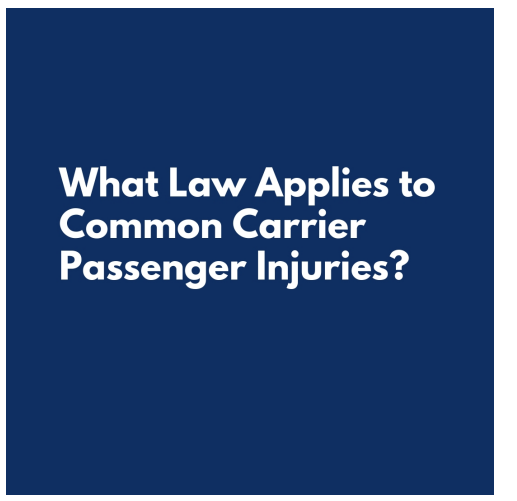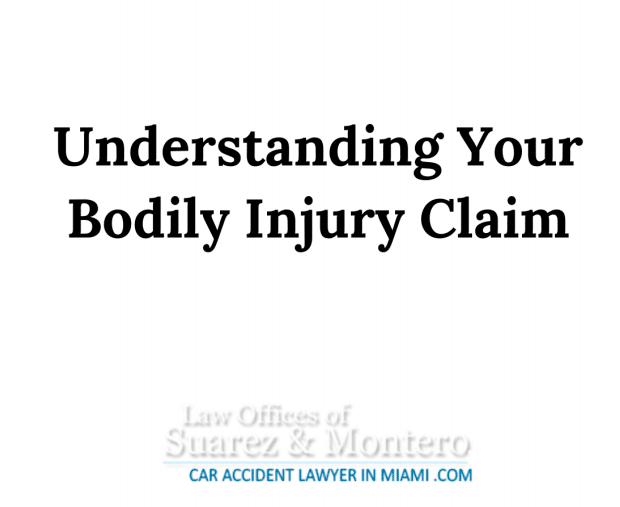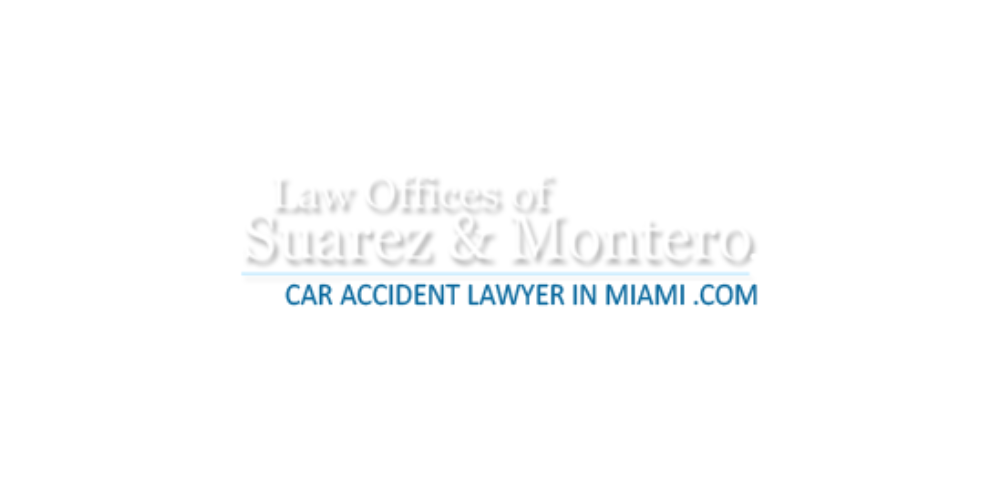
What Law Applies to Common Carrier Passenger Injuries?
Victims of car accidents involving commercial vehicles such as busses or planes may have heard the term ‘common carrier’ and wondered what it refers to and what the significance of a common carrier is. At their most basic level, common carriers transport people or goods from one place to another for a fee and have certain duties of care for their passengers. “Common carrier” is specifically defined by Florida statute under the chapter relating to fish and wildlife conservation. There, the statute defines “common carrier” as including any person, firm, or corporation who undertakes for hire, as a regular business, to transport persons or commodities from place to place, offering services to all such as may choose to employ the common carrier and pay the common carrier charges. Many common carriers are regulated by the government and are always required to exercise the highest level of care for the safety of passengers they are transporting. Negligence is the failure to use reasonable care. The reasonable care required of a common carrier is different from the reasonable care required of a passenger. The reasonable care required of a common carrier for the safety of a passenger is the highest degree of care that is consistent with the type of transportation used and the practical operation of the business of a common carrier of passengers. Negligence of a common carrier is doing something that a very careful person would not do under like circumstances or failing to do something that a very careful person would do under like circumstances. A significant amount of trust is placed in common carriers. If a common carrier has been negligent, it may be liable to compensate the victims for their damages.
What is a Common Carrier?
A common carrier is defined as “any person engaged in motor carrier transportation of persons for compensation over the public highways of this state who holds his service out to the public and provides transportation over regular or irregular routes. The law recognizes that a special relationship is created once a common carrier accepts a passenger for transportation. This special relationship imposes upon the common carrier the duty to exercise the highest degree of care for the safety of its passengers. The source of this high standard of care imposed on carriers is in part the nature of the carrier’s undertaking whereby the passenger must entrust his or her bodily safety to the care and control of the carrier’s vehicle and employees, and he or she cannot freely or independently walk away, once the undertaking has commenced. This situation creates a special duty to protect. The duty of the carrier toward its passengers has been described as the duty to exercise the highest degree of care, foresight, prudence and diligence reasonably demanded at any given time by the conditions and circumstances then affecting the passenger and the carrier during the contract of carriage. The carrier’s duty has also been described as the obligation to carry safely those whom they take into their coaches or cars, as far as human foresight will go; that is, for the utmost care and diligence of very cautious persons.
Once a duty is established, the carrier may not delegate that duty to anyone else. However, despite the extraordinary duty a carrier owes its passengers, the carrier is not an insurer of the safety of its passengers. The duty of care does not extend to the point of requiring the carrier and its employees to possess superhuman powers of anticipation or to exercise such powers in a threatened emergency. The carrier’s duty also does not require it to place a guard over its passenger or to deliver him to the place of destination safely at any and all events or to keep him free from all harm under any and all circumstances. The duty of care begins when the relationship of carrier and passenger is established and does not end until that relationship ceases. The courts have held that a common carrier passenger is one who enters or occupies the carriers’ vehicle or conveyance for the purpose of transportation with the carrier’s express or implied consent, and he ceases to be a passenger at the time he safely alights from the carrier’s vehicle or conveyance. Therefore, the duty ceases when the passenger has safely exited from the vehicle at his destination. If the carrier is delayed or the passenger temporarily leaves the vehicle prior to reaching the final destination, a question of fact arises whether the relationship of carrier and passenger terminates. Some courts have indicated that a common carrier may owe an even higher duty of care when it accepts passengers with unusual conditions.
Contact an Experienced Personal Injury Attorney Today!
There is no replacement for quality legal advice after being involved in a car accident. The car accident attorneys at Suarez and Montero would love to have an opportunity to explain the law in Florida to assist you in presenting a strong claim against the at fault party. Every firm is distinctive and auto accident victims have needs that are also distinct. needs are different. The Florida auto accident attorneys at Suarez & Montero encourage you to reach out so that we can explain more about the different ways that our law firm and attorneys can provide legal help and guidance after an auto accident. Make an appointment with us at one of our many locations. Remember, we work on a contingency basis so you will owe us nothing If we are unable to obtain successful results for your case. The attorneys at Suarez & Montero can meet with you to discuss further. always available to talk with you and answer your questions. Our skillful attorneys are genuinely committed to our clients. We will fight to make sure that you get the maximum amount of compensation owed to you. Let us help you get the medical care you need and fight to make sure you are compensated for your injuries! Our attorneys are ready to provide proven legal representation in pursuing your claim and stand ready to protect your rights. We are available 24/7 to give you a free, no risk case consultation.
We serve clients throughout Florida including those in the following areas:
Miami-Dade: Aventura, Coral Gables, Doral, Fontainebleau, Hialeah, Homestead, Kendall, Miami, Miami Beach, Miami Lakes, North Miami, Tamiami, and Westchester.
Broward: Fort Lauderdale, Hallandale Beach, Hollywood, Pembroke Pines, and Weston; and Palm Beach County including Boca Raton, Lake Worth, and West Palm Beach.
The Law Offices of Suarez & Montero Car Accident Attorneys represents accident victims injured in various types of accidents including:
• Distracted Driving Accident Lawyers
• Rollover Accidents
• Failure to Yield Car Accidents
• Merging Accidents





